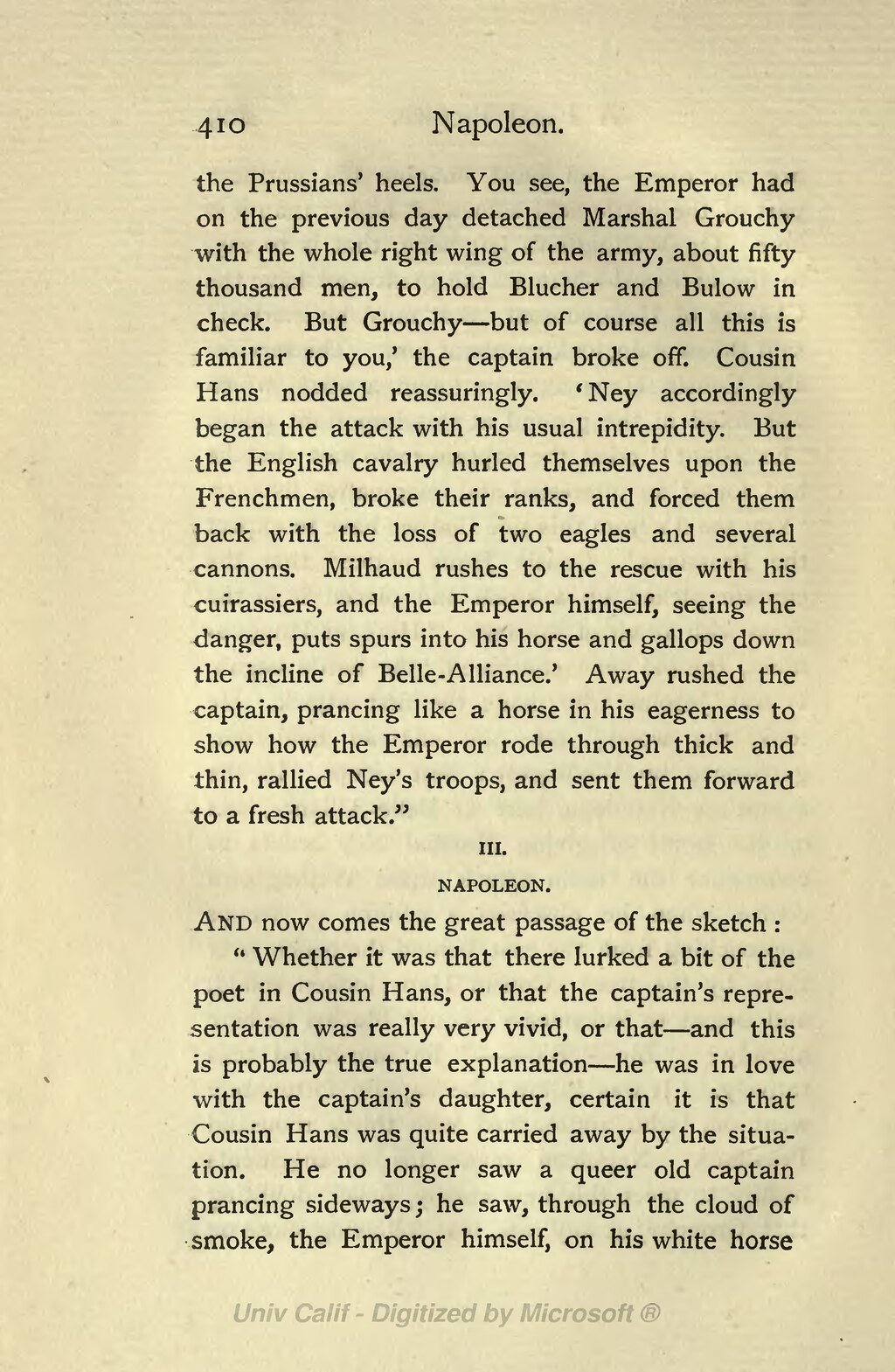the Prussians' heels. You see, the Emperor had on the previous day detached Marshal Grouchy with the whole right wing of the army, about fifty thousand men, to hold Blucher and Bulow in check. But Grouchy—but of course all this is familiar to you,' the captain broke off. Cousin Hans nodded reassuringly. 'Ney accordingly began the attack with his usual intrepidity. But the English cavalry hurled themselves upon the Frenchmen, broke their ranks, and forced them back with the loss of two eagles and several cannons. Milhaud rushes to the rescue with his cuirassiers, and the Emperor himself, seeing the danger, puts spurs into his horse and gallops down the incline of Belle-Alliance.' Away rushed the captain, prancing like a horse in his eagerness to show how the Emperor rode through thick and thin, rallied Ney's troops, and sent them forward to a fresh attack."
III.
NAPOLEON.
And now comes the great passage of the sketch:
"Whether it was that there lurked a bit of the poet in Cousin Hans, or that the captain's representation was really very vivid, or that—and this is probably the true explanation—he was in love with the captain's daughter, certain it is that Cousin Hans was quite carried away by the situation. He no longer saw a queer old captain prancing sideways; he saw, through the cloud of smoke, the Emperor himself, on his white horse
